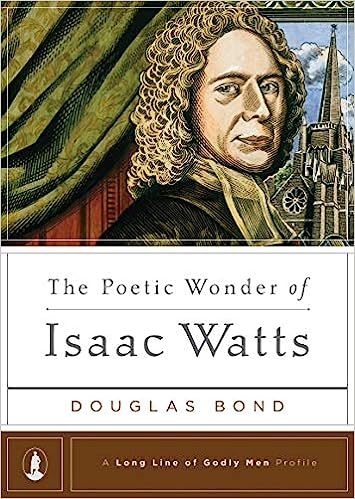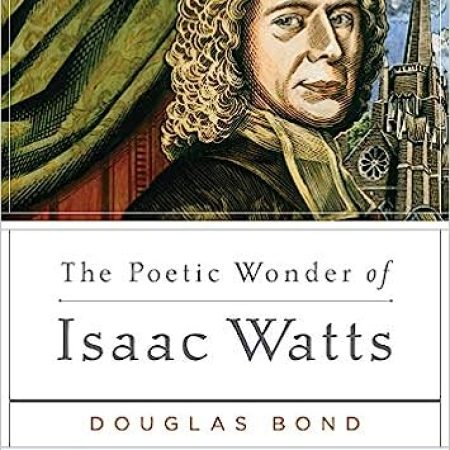
I suspect that if we were to ask the ‘average’ Christian -whoever that may be – what they knew about Isaac Watts, the answer would be limited to his name, the fact that he was a hymn writer and, perhaps, one or two of his best known hymns. I, for one, wouldn’t have fared much better prior to reading this account of his life by the very able writer, Douglas Bond, which is one of the excellent ‘A Long Line of Godly Men’ series. I am struck by the fact that, at least going by the bibliography, for such an influential Christian, this is one of only two biographies about him that have been written since the 19th century.
In less than 150 pages – around 40 are devoted to Appendices – we are given a commendable introduction to the man who has had such a massive impact on the worldwide church’s hymnology with chapters devoted to such subjects as Watts as Poet Theologian, Watts as Educator, Watts as Children’s Poet and, well you get the gist of it.
Bond treats his subject in an interesting way, though one it took me a while to appreciate. After a relatively brief account of his childhood and youth, there follows a series of chapters tracing Watt’s life in terms of his activity and influence as noted above. I must confess I would have appreciated a fuller, straightforward biographical record, but Bond’s approach does emphasise the contribution made by Watts in a wide range of spheres, though as a result each chapter tends to move about rather a lot, touching on various times and places in his life.
Watts started writing verse, and surprisingly deep theological verse at that, from a very early age. For example, as a 7-year-old he sat down and, ‘of the cuff’, composed a two verse song about grace in an acrostic that spelt out his name. Described by an admirer of his work who rejected his proposal of marriage, as a “not even…moderately presentable Englishman, but a minute, sallow-faced, anatomy with hook nose, prominent cheekbones, heavy countenance, pale complexion, and small gray eyes”, Watts struggled throughout his life with poor health, yet as well as his prolific hymn writing, pastored a growing non-conformist congregation in London, a church previously served by John Owen.
As well as giving helpful insights into the theological background and context to some of Watts’ best loved hymns, what Bond does bring out very well is the ground-breaking influence he had on church practice as regards congregational singing. In an age when the Regulative Principle was observed, and “exclusive psalmody ruled the day”, Watts’ was deeply unhappy with the standard of what was being sung and began to introduce new songs for worship. As with his preaching, he applied the redemptive-historical method of interpretation to Scriptural passages and composing hymns drawn from Scriptural texts but directly pointing them to Christ. Even today we owe a great debt to this visionary approach.
I would certainly commend this account which has whetted my appetite to know more about Watts, surely a good mark of a biography.
Ligonier Ministries (28 Oct. 2013)
